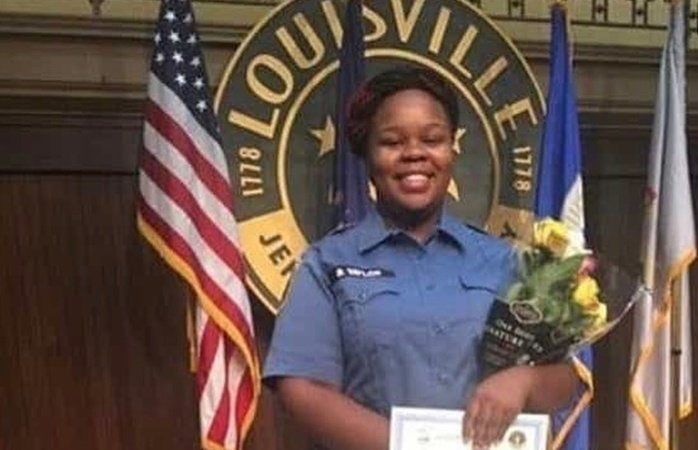Partial Ban On No Knock Warrants Signed Into Kentucky Law After Bipartisan Compromise
Friday marked the end of no-knock warrants in the bluegrass state except in certain limited circumstances, AP News reports.
The law signed by Democratic Gov. Andy Beshear permits no-knock warrants only in situations where there is “clear and convincing evidence” that the crime being investigated “would qualify a person, if convicted, as a violent offender.”
Tamika Palmer, Breonna Taylor’s mother, and other family members joined Beshear for the bill’s signing. Signed at the Kentucky Center for African American Heritage, Beshear gave Palmer the pen he used to sign the law.
“While it’s not the full legislation that they wanted in terms of a complete ban on no-knock warrants, they are satisfied that this is a start and a win in a deeply divided General Assembly,” said the family’s attorney, Lonita Baker.
Although this bill is not Breonna’s Law, the calls and cries from across Kentucky that were fueled by her light are the reason this legislation was even possible. If anything, this is more proof that our work cannot stop.
We will not slow down.
We will keep saying her name. https://t.co/fXzldcIZ8g— Charles Booker (@Booker4KY) April 9, 2021
The new law does not go as far as House Bill 21 introduced by State Rep. Attica Scott, also known as Breonna’s Law. According to Associated Press, the new law doesn’t prevent individual municipalities from instituting their own bans. The partial ban passed with bipartisan support as Republicans maintain a veto-proof majority in the legislature.
Pre-filed by Scott last summer and officially introduced in January, HB 21 would have banned the use of no-knock warrants in any scenario. Scott also included provisions that would add greater accountability for officers mandating body camera use during and drug and alcohol testing immediately after any shooting or deadly incident occurring in the line of duty. The law would also require a judge to determine whether a violent entry is necessary to execute a warrant.
Scott began having public dialogues and information sessions about Breonna’s Law last fall. In March, a caravan of supporters for HB 21 drove to the state capitol to support the proposed reforms.
During an interview with The Cut, Scott said it was her first bill to be heard in a committee since taking office. Scott was elected in 2016.
Louisville passed its own version of Breonna’s Law in June 2020, three months after Breonna Taylor was killed in her home during a poorly executed no-knock warrant. HB 21 would extend the Louisville enacted ban statewide.
An analysis by the Courier-Journal found that 33 states had over 80 proposals aimed at curbing, studying, or banning the use of no-knock warrants. Hawaii and Pennsylvania are among states taking up versions of Breonna’s Law to ban the use of no-knock warrants. Hawaii’s bill would require officers to be in uniform when executing warrants and wait 30 seconds before entering a home.
It took 100+ testimony to convince a handful of lawmakers to vote on Breonna’s Law. It’s going to take much more to convince the full 51 in the house — please join Hawaii for Black Lives and my team to see it through! Sign up
https://t.co/QbRWO5wmwe
— Shayna Lonoaea-Alexander (@shaynalalex) April 7, 2021
Virginia passed a ban on no-knock warrants in October, joining Florida and Oregon. Reflecting on the various states taking action on no-knock warrants, Scott said the laws were a part of Breonna’s legacy.
“That is a policy legacy that she’s leaving with us,” Scott told the Courier-Journal.

